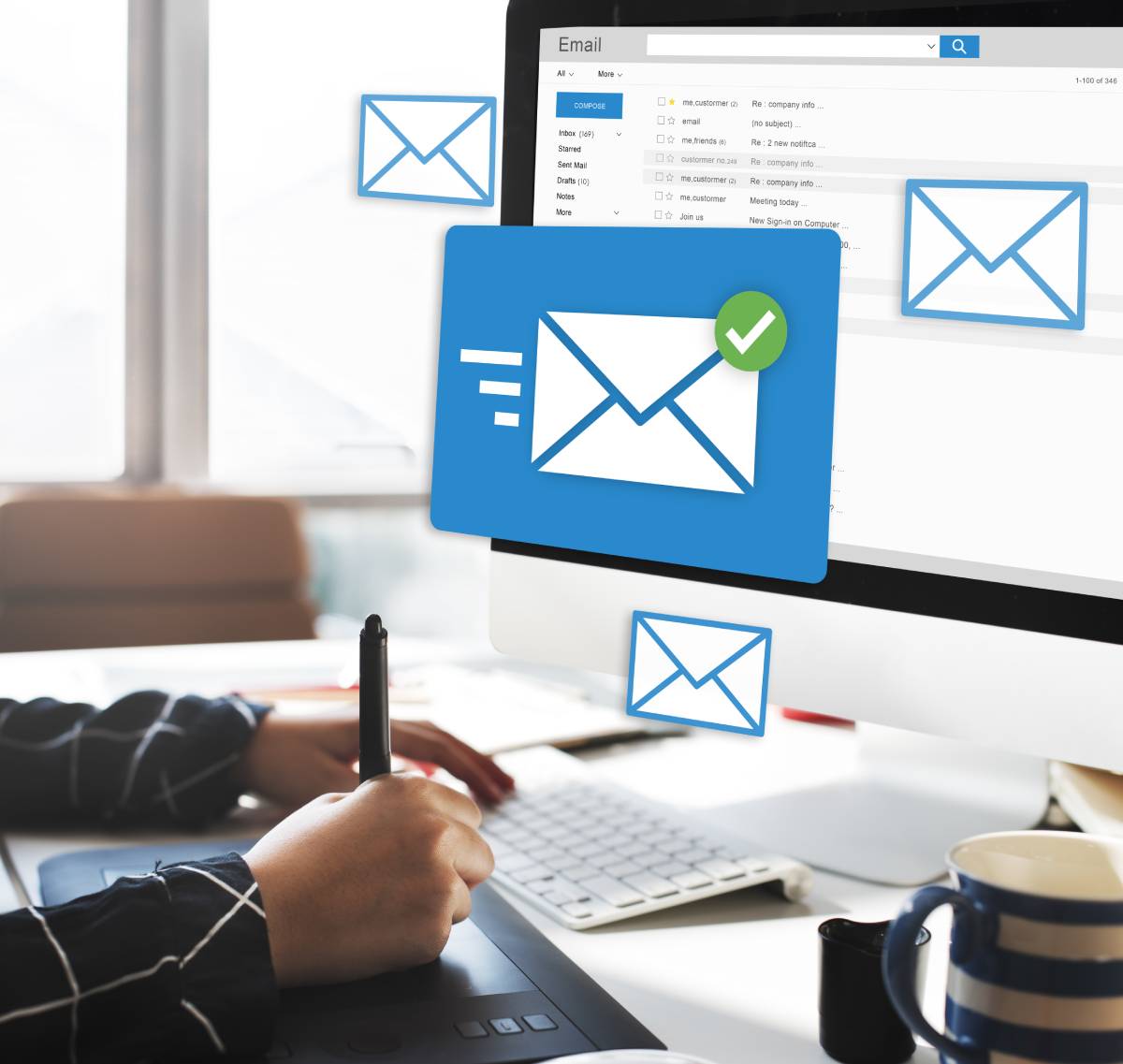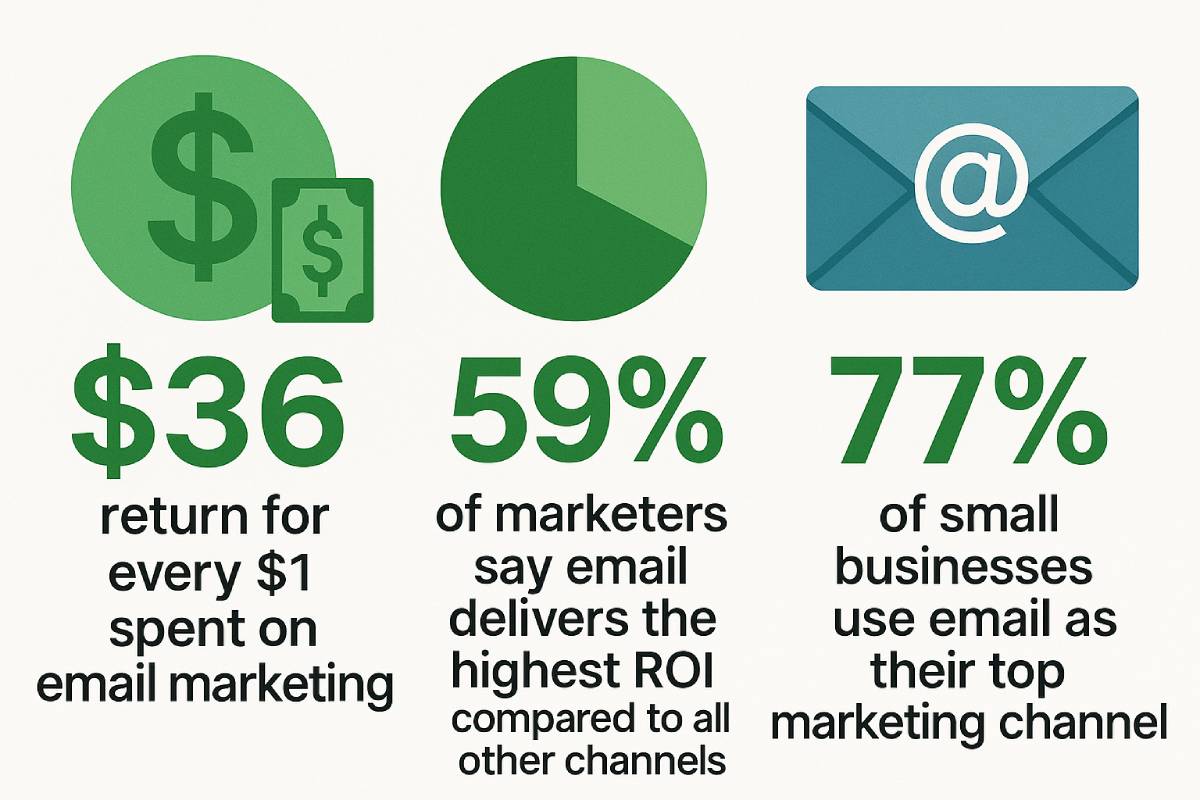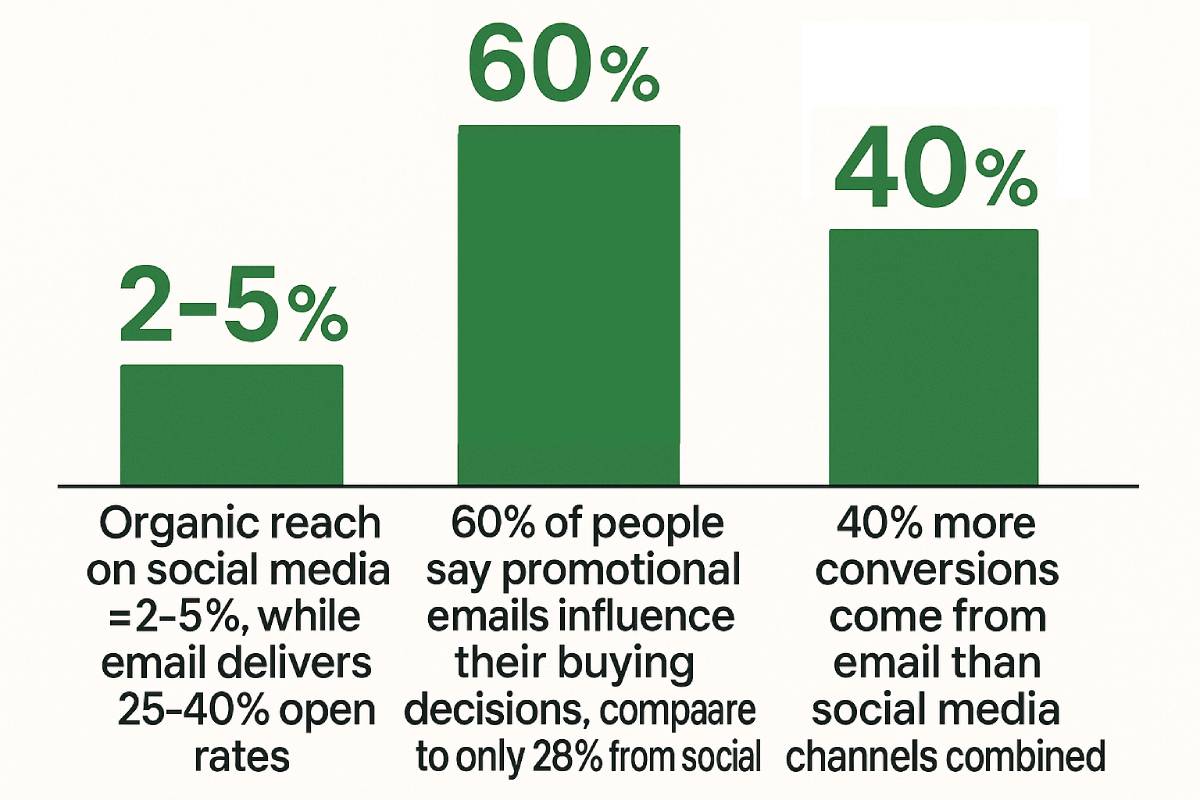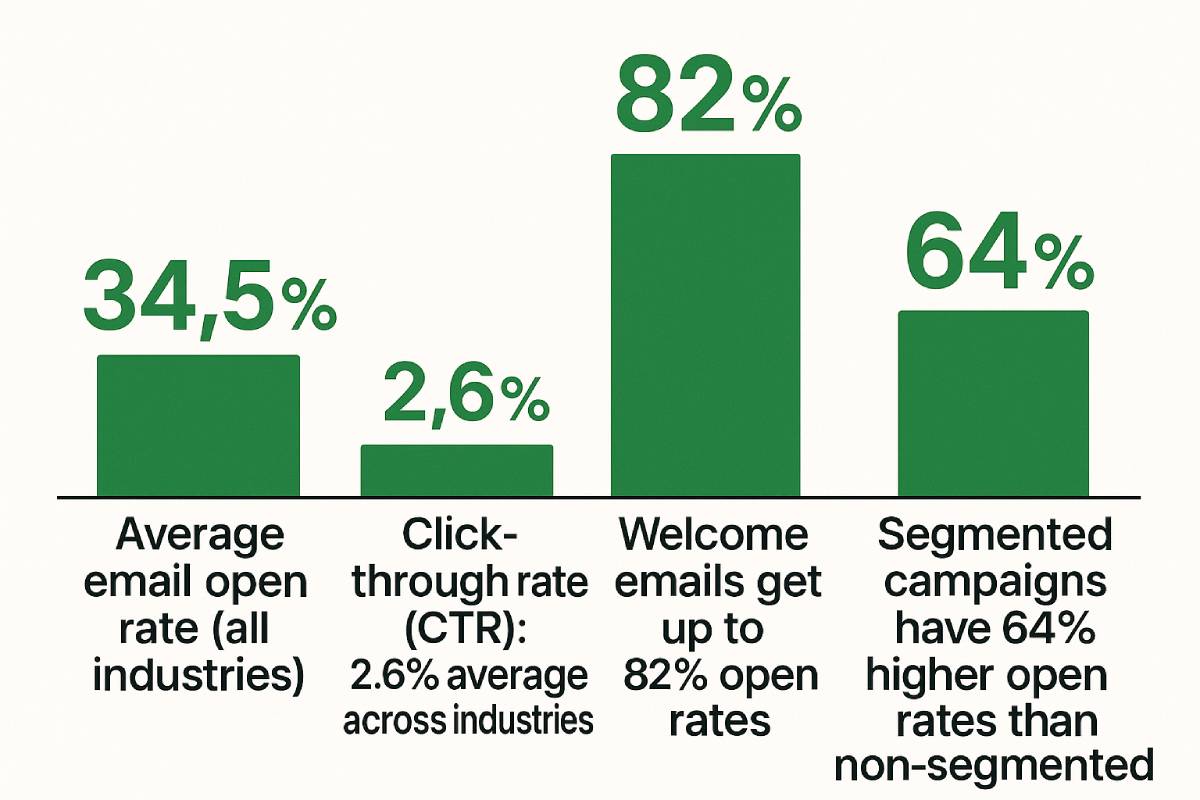
How Do I Build an Email List for My Small Business?
Picture this: you’ve been grinding on social media, posting daily, hopping on every trend-lip-syncs, carousels, memes-only to watch your reach tank harder than a Leafs playoff run. One algorithm change, and suddenly, nobody sees you.
That’s why an email list is your small business’s insurance policy. Unlike followers, an email list is something you actually own. Nobody can take it from you-not TikTok, not Elon, not Zuck.
Email marketing is like the OG of digital marketing, but guess what? It still outperforms every shiny new platform. Why? Because your customer’s inbox is still the most personal, direct place online. If they’re giving you a spot in there, you’ve earned trust. And trust = sales.
Table of Contents
What Is an Email List and Why Does It Matter for Small Businesses?
How an Email List Compares to Social Media Followers
Step 1: Stop Chasing Strangers, Start Collecting Fans
Step 2: The Freebie Everyone Secretly Wants
Step 3: Your website = Your List-Building Machine
Step 4: Social Media Isn’t Just for Likes
Step 5: Keep It Legal, Keep It Classy
Best Tools for Email List Building in 2025
Big Mistakes Small Businesses Make with Email Lists
How Often Should You Email Your List? (Without Being Annoying)
Key Takeaways
-
Email > followers. You own your list; you rent your followers.
-
ROI is insane. Studies show email generates $36+ for every $1 spent.
-
It’s not spam if it’s valuable. Consistency + good content = loyal fans.
-
Small businesses win big. You don’t need millions of followers-you need a few hundred true subscribers who actually care.
What Is an Email List and Why Does It Matter for Small Businesses?
At its core, an email list is just a collection of people’s email addresses who have agreed to hear from you. But don’t think of them as “leads.” Think of them as your inner circle-the people who actually want to know what you’re cooking up.
Why it matters:
-
Direct line. No gatekeepers. You write → they receive.
-
Higher intent. Someone giving you their email is like someone giving you a house key. They’re inviting you in.
-
Sales-friendly. Email is still the #1 channel for converting window-shoppers into paying customers.
For a small business, your email list is basically a safety net. Ads are expensive, algorithms unpredictable, but your email list? That’s your base.
How an Email List Compares to Social Media Followers
Here’s the raw truth:
-
Social media = a party you don’t control. You show up, play the game, and hope people see you through the crowd.
-
Email = your living room. People walk in, sit down, and you talk directly to them.
Numbers back it up: social reach is usually <5%. Email open rates hover between 25–40%. That’s 8x better visibility than your Instagram post drowning in a sea of latte art.
Step 1: Stop Chasing Strangers, Start Collecting Fans
A rookie mistake? Chasing randoms like you’re speed dating with no standards. Forget quantity. You don’t need a bloated list of people who’ll never open your emails.
Instead:
-
Start with current customers-they already trust you.
-
Add friends of customers (referrals work like magic).
-
Collect emails at checkout, events, and even casual convos (“Hey, want me to send you our discount code? Just drop your email.”).
Quality beats quantity every time. Would you rather have 500 people who actually read and buy, or 5,000 who ghost you?

Step 2: The Freebie Everyone Secretly Wants
People don’t hand over their email for “updates.” They want value, now. Enter: the freebie (aka lead magnet if you want the fancy marketing term).
Good freebies:
-
Retail? A 10% discount code or “VIP early access.”
-
Service-based? A checklist, guide, or resource. Example: A Toronto accountant offering “The 5 Tax Deductions GTA Small Businesses Always Miss.”
-
Food biz? Free recipe download, coupon, or loyalty rewards.
Your freebie should solve one specific problem or give one small win. If people feel instant value, they’ll trust you for more.
Step 3: Your website = Your List-Building Machine
If your website isn’t collecting emails, you’re leaving money on the table.
Ways to optimize:
-
Pop-ups (done right): Exit-intent pop-ups (triggered when someone’s about to leave) convert like crazy.
-
Sticky bars: Small, non-intrusive banners with “Join the club.”
-
Dedicated landing pages: One focus, one freebie, one opt-in. Clean, simple, high-converting.
-
Multiple touchpoints: Homepage, blog, product pages, footer. Make it easy everywhere.
Think of your site like a shop: the door is your homepage, but you should have multiple checkout counters for email sign-ups.
Time to take action!
Look at your website right now: is it actually collecting emails, or is it just sitting there looking pretty? If it’s the second one, it’s time to fix that. Add a smart sign-up spot, a polite pop-up, or even a landing page for your freebie.
Remember: every email you collect today could be a loyal customer tomorrow - and if you want a hand getting started, get in touch with us.
Step 4: Social Media Isn’t Just for Likes
Your Instagram, TikTok, or LinkedIn isn’t just for showing off-it’s your funnel.
Strategies that work:
-
Contests: “Enter with your email to win.” (Make the prize relevant to your business, not just an iPad giveaway that attracts freeloaders.)
-
Content teasers: Share part of your guide and gate the rest behind an email opt-in.
-
Stories/Reels: Remind followers that your real gems go to the list.
You don’t own your social following, but you can use it to build the list you do own.

Step 5: Keep It Legal, Keep It Classy
This is the boring but crucial part. Canada’s CASL laws (and global counterparts like GDPR) mean you cannot simply add people without their consent.
Golden rules:
-
Always have explicit permission. (No sneaky pre-checked boxes.)
-
Always include unsubscribe. It’s not just law-it’s respect.
-
Never buy lists. It’s like buying fake friends-you’ll get burned.
Stay classy, stay legal, and people will actually want to stick around.
Step 6: The Consistency Game
Here’s where most small businesses fail. They get people on a list… then never email. By the time they finally do, subscribers are like: “Wait, who are you again?”
Consistency = trust.
-
Aim for once a week or biweekly.
-
Mix formats-stories, tips, promos, behind-the-scenes.
-
Keep emails short, snappy, and personal.
Don’t stress about being Shakespeare. Just be real and regular.

Best Tools for Email List Building in 2025
Choosing the right tool depends on your business:
-
Mailchimp: Best for beginners. Drag, drop, done.
-
Klaviyo: For e-commerce kings/queens. Shopify loves it.
-
ConvertKit: Made for creators, coaches, and freelancers.
-
MailerLite: Budget-friendly, clean, efficient.
-
HubSpot: Big business vibes, but can scale if you’re planning for growth.
Pick one and stick with it. The tool matters less than your consistency.
Big Mistakes Small Businesses Make with Email Lists
Let’s call them out:
-
Buying lists. Just no. You’ll be marked as spam faster than free Wi-Fi at a coffee shop.
-
Ghosting subscribers. If you don’t show up regularly, they’ll forget you exist.
-
Over-selling. If every email is “buy now,” you’re basically an infomercial.
-
Bad design. Mobile-first is non-negotiable. Most people open emails on their phones.
How Often Should You Email Your List? (Without Being Annoying)
There’s no one-size-fits-all, but here’s the cheat sheet:
-
Daily: Only if you’re a media brand.
-
Weekly: The sweet spot.
-
Biweekly: Solid option if your biz is smaller or you’re starting.
Don’t overthink it-just don’t ghost them.
How to Measure If Your Email List Is Paying Off
Numbers don’t lie:
-
Open rate (20–40%) → Are they curious enough to click?
-
CTR (2–5%) → Are they engaging?
-
Conversions → Are they buying?
-
Unsubscribes → Healthy churn is fine. A huge spike means you’re off-track.
Pro tip: Don’t obsess over vanity metrics. One sale from an email list can outshine 1,000 likes on IG.
FAQs - Real Questions People Google
Do I need a website to start building an email list?
No. You can use landing page builders (Mailchimp, ConvertKit) to start collecting emails without a full site.
What’s the easiest free way to start growing an email list?
Offer a freebie and promote it on social. Simple, free, effective.
How many emails are too many before people unsubscribe?
If you’re sending value, weekly is fine. If unsubscribes spike, scale back.
Is email marketing still worth it with all the spam filters?
Yes-spam filters target spam. If you’re delivering value, you’re safe.
Can I just buy an email list instead of building one?
Nope. Those lists are toxic. Build your own community instead.
What should I send to my list if I don’t have news every week?
Tips, stories, curated resources. You don’t need “breaking news”-you just need to stay human.
Final Thoughts
Building an email list isn’t about blasting strangers. It’s about building trust, one inbox at a time. Start small. Offer value. Stay consistent.
The list you build today becomes the audience that feeds your business tomorrow. Treat them like VIPs, not numbers, and your emails will turn into the most profitable channel you own.
Why Partner with UnlimitedExposure.com – Toronto’s Trusted Team for AI-Powered SEO, Content, and Local Discovery
For almost 30 years, we’ve helped Toronto businesses do more than just “keep up.” We help them stand out. At Unlimited Exposure Online, we combine the precision of AI with the creativity of real humans to make your brand rank, resonate, and deliver results. No buzzwords. No empty promises. Just measurable growth that matters.
From chatbots that feel human to content built for Google and voice search, our job is simple: make sure your business shows up exactly when local customers are looking.
What We Deliver:
-
AI-Driven SEO for Local Reach – Dominate “near me” searches with natural, index-ready content that performs on Google, Maps, and voice assistants like Alexa.
-
Smart Social Media Campaigns – Scroll-stopping captions, strategic content calendars, and engagement tactics built for Toronto audiences across Instagram, Facebook, LinkedIn, and more.
-
Video & Short-Form Marketing – Reels, stories, explainers-quick-hit videos designed to grab attention and build trust fast.
-
AI Chatbots & Voice Assistant Integration – 24/7 automated responses that feel human, help customers act quickly, and keep your business connected.
-
Mobile-First Web Design – Fast, professional, and affordable websites that look great and perform everywhere-especially on mobile.
-
Conversational, Conversion-Ready Content – Blog posts, FAQs, and service pages optimized for featured snippets, voice search, and (most importantly) real human readers.
-
Email Marketing That Actually Works – Personalized campaigns, automations, and newsletters that build trust, boost engagement, and turn subscribers into loyal customers.
Whether you’re repairing broken rankings or launching a brand-new content strategy, we’ll help your business get discovered in real time, by real people, in the places that matter most.
